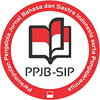Europeana: Aggregating Cultural Diversity In Unity
Sari
This study examines Europeana, a European cultural heritage data aggregator. The purpose of this study is to explore the Europeana platform and its relationship in a broader field. The purpose of this research is to provide an overview of Europeana development and demonstrate the significant alteration in the platform. A qualitative approach used in this study is descriptive methods and direct observation to Europeana website, alongside with literature review was conducted for the data retrieval technique. The research found that Europeana experienced a significance in the development and has several objectives, but more importantly emphasized more on creation, production and distribution process of digital heritage content in Europe. As a result, Europeana has a significant effect on cultural heritage sustainability through work closely with digitization to present the tacit knowledge in the public sphere and preserve cultural heritage object.ÂÂ
Teks Lengkap:
PDF (English)Referensi
Burdick, Anne, Johanna Drucker, Peter Lunenfeld, Todd Presner, and Jeffrey Schnapp. 2012. Digital Humanities / Anne Burdick ... [et al.]. Edited by Anne Burdick. Cambridge, MA: MIT Press.
Europeana. 2011. Europeana Strategic Plan 2011-2015. Europeana.
Europeana. 2013. Europeana Data Model Primer. Europeana.
Europeana. 2015. Europeana Strategy 2015-2020. Europeana.
Europeana. 2017. Definition of the Europeana Data Model v5.2.8. Europeana.
EuropeanComission. 2005. i2010: DIGITAL LIBRARIES edited by The Council Commission to The European Parliament, The European Economic and Social Committee and The Committee of the Regions. Brussells.
EuropeanComission. 2011. COMMISSION RECOMMENDATION of 27.10.2011 on the digitisation and online accessibility of cultural material and digital preservation. Brussells: European Comission.
EuropeanCommission. 2014. "Timeline of digitisation and online accessibility of cultural heritage." accessed 30 October. https://ec.europa.eu/digital-single-market/news/timeline-digitisation-and-online-accessibility-cultural-heritage.
Gaona-GarcÃÂa, P. A., Fermoso-GarcÃÂa, A., & Sánchez-Alonso, S. (2017). Exploring the relevance of Europeana digital resources: preliminary ideas on Europeana metadata quality. Revista Interamericana de BibliotecologÃÂa, 40(1), 59-69.
Hong, Jong-Youl. 2015. "Digital Cultural Heritage in the EU and its Application Strategy." International Journal of Software Engineering and Its Applications 9 (5):85-96.
Nicholas, David, and David Clark. 2014. "Information Seeking Behaviour and Usage on a Multi-media Platform: Case Study Europeana." In Library and Information Sciences: Trends and Research, edited by Chuanfu Chen and Ronald Larsen, 57-78. Berlin, Heidelberg: Springer Berlin Heidelberg.
Purday, Jonathan. 2010. "Intellectual Property Issues and Europeana, Europe's Digital Library, Museum and Archive." Legal Information Management 10 (3):174-180. doi: 10.1017/S1472669610000678.
Sabharwal, A., & Safari Books Online. (2015). Digital curation in the digital humanities: Preserving and promoting archival and special collections. Amsterdam, [Netherlands]: Chandos Publishing.
Sages, Comité des. 2011. Digital Agenda: "Comité des Sages" calls for a "New Renaissance" by bringing Europe's cultural heritage online. Brussells: Comité des Sages.
Vollmer, Timothy. 2012. "Europeana releases 20 million records into the public domain using CC0." Creative Commons, accessed 2 November. https://creativecommons.org/2012/09/12/europeana-releases-20-million-records-into-the-public-domain-using-cc0/.
DOI: https://doi.org/10.33387/tekstual.v19i2.4246
Refbacks
- Saat ini tidak ada refbacks.
Tekstual terindeks oleh:



